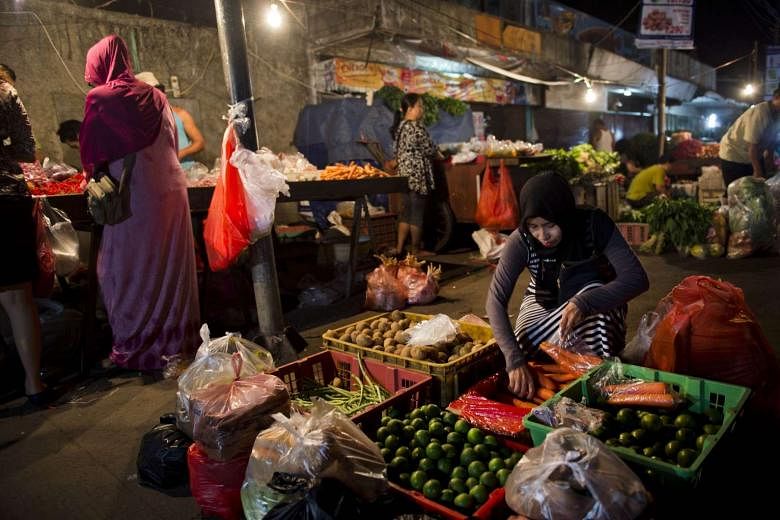The non-Muslim world is waking up to the call of the growing Muslim consumer market, going by a pick-up in participation in the annual World Islamic Economic Forum (Wief), said Wief Foundation chairman Musa Hitam yesterday.
So far, about 30 of the 79 countries being represented at this year's gathering will be from non-Muslim countries, he told a press briefing at the InterContinental hotel.
More than 2,500 people, including heads of state, along with multinational and small-business leaders, are expected to attend the 11th Wief in Kuala Lumpur next month to explore investment and business opportunities.
Interest has risen since the Wief held in London in 2013, said Tun Musa, a former deputy prime minister of Malaysia.
He said: "After London, we were invited by the Koreans to have a round-table (discussion). It was so successful that the Koreans have now invited us to host the 2017 forum in Korea."
Muslims make up only a small proportion of South Korea's population, but the rise of the "Islamic world consumer power" is not lost on them, said Mr Musa.
"There's a lot of money to be made on things related to Islam - halal food, Islamic banking, Islamic finance, tourism. Many of the Muslim countries have got more money; (Muslims) are travelling and when they travel, they are always conscious of their religion, places for prayers ," he added.
Asean alone is a market that is more than 40 per cent Muslim.
During the briefing, Mr Musa also shared his views on recent efforts at regional integration, such as the Asean Economic Community, which will be formed officially at the end of this year, but which he said is only "75 per cent" there.
"There are many things that have not been put in place, especially in the services sector," he said.
He also urged Singapore to be more "liberal" in opening up education and scholarship opportunities to the region.
"Singapore demands quality, top level. When you ask for top-level people to come, you can be very elitist - (you get) the best students," he said, instead of the ordinary people, who need help. "Poverty does affect standards of education. We are interested in the average person getting the average minimum education."


